The Hope and Louise-Grenier Schools
Local partner:
Kidpower India
Kidpower India is a non-profit organization established in 2007 which aims to create a safer world for children by: (a) protecting their rights and (b) teaching
them the social and academic skills necessary to gain self-confidence and build a better quality of life.
According to the International Labor Organization (ILO), there are 12.9 million child workers in India between 7 and 17 years of age, making it the country
with the largest population of child workers in the world. Many of these children
are forced to work because they have no access to education and/or live in dire
poverty, whether they reside alone or with their families.
Moreover, in the slums of Andhra Pradesh, one million children still live in
extremely precarious conditions. Most often, families in those areas live off the salvaging and reselling of recyclable materials. As for children, the combination of poor incomes, large families, long distances between home and school infrastructures or the lack thereof, and absentee parents mean that they do not have access to education, and therefore spend the greater part of their days alone and unsupervised. Specifically, over 11 million Indian children live on the streets. Many come from poverty-stricken families who seek to survive by begging or shoplifting.
As part of its partnership with CCI, Kidpower India opened the Hope School in
2013 in the Chittibabu Colony slum. The Louise-Grenier School was opened in 2014 and is located in the Madhavadhara slum.
These schools provide children with a basic education so as to enable them to enter the regular school system after one year of remedial studies.
Classes begin at 9:30 am and end at 12:30 pm. Children mainly learn Math,
Biology, Telugu (the local language), but also some basic English. Traditional
teaching methods are also accompanied by more playful approaches in order to keep the attention of young people who are not used to going to school closely focussed.
In addition, the schools provide supplies and lunches, which are incentives used to attract young people to attend school.
Objectives :
• Provide a basic education to children in both slums.
• Promote access to education for girls.
• Develop children’s social skills.
• Provide a safe and dynamic place for children to flourish, free from
exploitation.
• Educate families and communities about the importance of education.
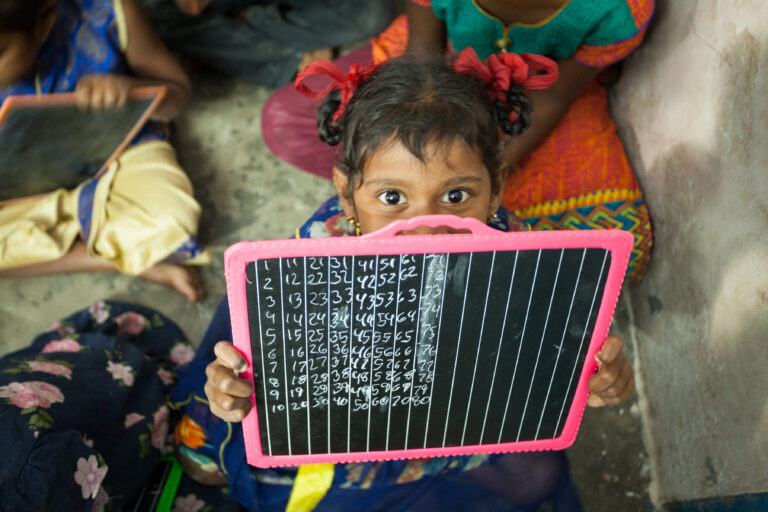
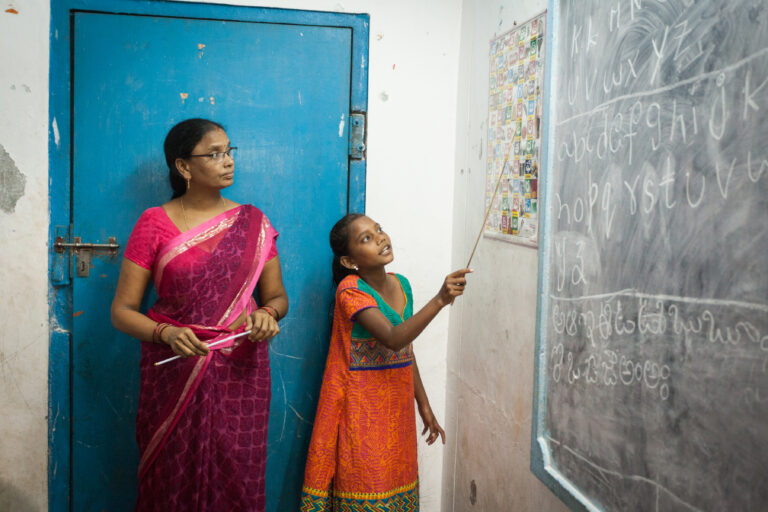
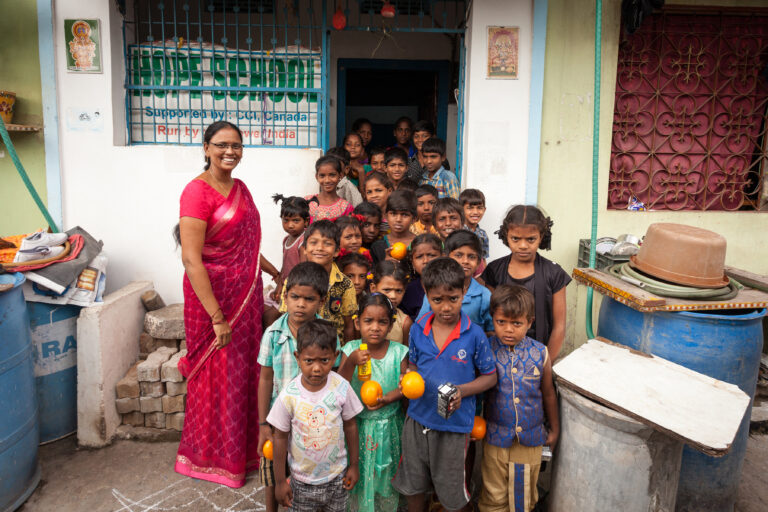
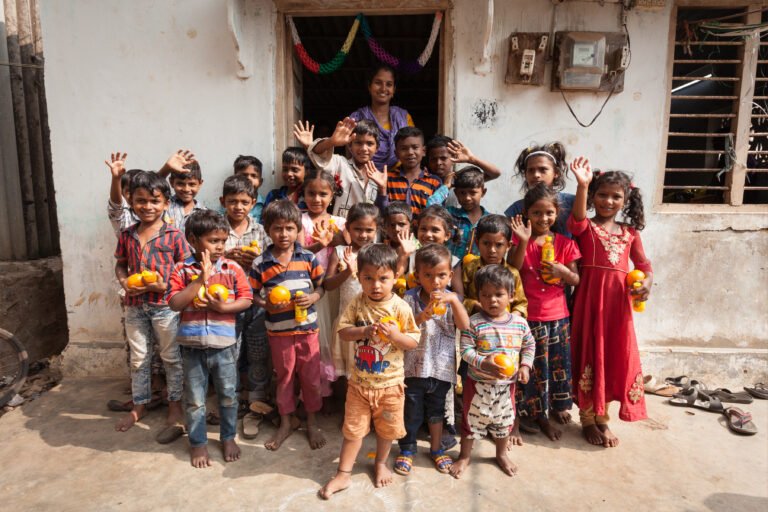
Photo credit Kiran Ambwani/CCI
